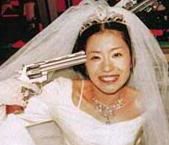| View previous topic :: View next topic |
| Author |
Message |
Real Reality
Joined: 10 Jan 2003
Location: Seoul
|
 Posted: Tue Sep 26, 2006 1:25 pm Post subject: What Is Brain Korea? New University Graduates Are.... Posted: Tue Sep 26, 2006 1:25 pm Post subject: What Is Brain Korea? New University Graduates Are.... |
 |
|
Brain Korea, Or What's Left of It
... students of 15 universities majoring in economics, math and IT, 23.9 percent of students were unable to convert 75.3 percent into 0.753. Some 14.5 percent of students failed to pinpoint the largest figure from among 0.8, 13/20, 37/50, 0.27 and 85/100. These are students majoring in disciplines relying a great deal on math.
Samsung Electronics spends W80 billion a year on re-education of newly hired employees. Major corporations' rate of hiring experienced workers jumped from 39.6 percent in 1996 to 79 percent in 2005 because new employees fresh from university are useless.
A Japanese academic research institute evaluated the academic standards in math, physics and chemistry of freshmen and seniors of over 10 universities in 2003, and Korea came last in all fields. Freshmen's math scores ranged from between 31.6 and 35.6 points for Chinese, between 10 and 47.4 points for Japanese -- and between 1.3 and 16 points for Koreans....
Chosun Ilbo (September 25, 2006)
http://english.chosun.com/w21data/html/news/200609/200609250036.html |
|
| Back to top |
|
 |
jlb
Joined: 18 Sep 2003
|
 Posted: Tue Sep 26, 2006 3:47 pm Post subject: Posted: Tue Sep 26, 2006 3:47 pm Post subject: |
 |
|
Doesn't really surprise me that much for 2 reasons:
1. the focus on memorization and passing tests vs. actually knowing something and being able to use/apply it in real life.
2. I hear stories of how little university students actually study from my friends who work there. |
|
| Back to top |
|
 |
doggyji

Joined: 21 Feb 2006
Location: Toronto - Hamilton - Vineland - St. Catherines
|
 Posted: Tue Sep 26, 2006 4:50 pm Post subject: Posted: Tue Sep 26, 2006 4:50 pm Post subject: |
 |
|
| jlb wrote: |
| 1. the focus on memorization and passing tests vs. actually knowing something and being able to use/apply it in real life. |
As far as I know, in general Chinese or Japanese education is not very much different from Korean one in this regard. Yet, Chinese students scored much higher in the tests conducted by a certain Japanese academic research institute mentioned in the article. This is interesting. There can be many factors.
In Korea, it seems almost every high school student proceeds to university regardless of whether they really want to study further or not. There are so many totally business-oriented nameless universities all over the country and everyone can go to university if s/he doesn't mind the name. And all of those students are called "university students" anyway. I wonder if it's a bit different in China or Japan.
I think "the focus on memorization and passing tests" doesn't necessarily exclude "actually knowing something and being able to use/apply it in real life." In fact, Korean students have been doing quite good in international math/science olympiads and it's interesting that 15 year old Korean students ranked very high in all categories in
OECD PISA (Programme for International Student Assessment) 2003:
http://www.oecd.org/document/55/0,2340,en_32252351_32236173_33917303_1_1_1_1,00.html
But, yeah, when it comes to university students, their learning methods should be much more diversified.
| jlb wrote: |
| 2. I hear stories of how little university students actually study from my friends who work there. |
I think this has enough truth. While it depends on which school they go to and what academic policies the school has, etc, relatively in general, they don't seem to study as much as they are supposed to do in institutions of higher learning. They'd rather study for TOEIC... |
|
| Back to top |
|
 |
billybrobby

Joined: 09 Dec 2004
|
 Posted: Tue Sep 26, 2006 9:03 pm Post subject: Posted: Tue Sep 26, 2006 9:03 pm Post subject: |
 |
|
http://www.washingtonpost.com/wp-dyn/articles/A41278-2004Dec6.html
| Quote: |
| The PISA study, conducted every three years, ranked the United States 24th out of 29 countries in the Organization for Economic Cooperation and Development, a Paris-based group that represents the world's richest countries. Students from Finland and South Korea scored best in the survey, which measured the ability of 15-year-olds to solve real-life math problems. |
Something doesn't add up here (no pun intended). Who wrote this anonymous editorial? Why in the world did they feel it wasn't necessary to cite their sources? Would it have killed him to say WHICH japanese research institute? Seriously. Lack of citations like that just kill me. |
|
| Back to top |
|
 |
doggyji

Joined: 21 Feb 2006
Location: Toronto - Hamilton - Vineland - St. Catherines
|
 Posted: Tue Sep 26, 2006 10:10 pm Post subject: Posted: Tue Sep 26, 2006 10:10 pm Post subject: |
 |
|
| Real Reality wrote: |
Brain Korea, Or What's Left of It
... students of 15 universities majoring in economics, math and IT, 23.9 percent of students were unable to convert 75.3 percent into 0.753. Some 14.5 percent of students failed to pinpoint the largest figure from among 0.8, 13/20, 37/50, 0.27 and 85/100. These are students majoring in disciplines relying a great deal on math. |
A related article.
| The Korea Times wrote: |
... Lee said the study shows a lack of basic knowledge amongst students. However, some people opposed his conclusion, saying that the respondents might have not been sincere in solving the problems. They said the students might have fooled around and did not take the test seriously.
``If the research team gave extra points or benefits for getting the right answers or at least rewards for problem solving, the result might have turned in a different direction,�� said a professor of Seoul National University who requested anonymity. He said the researchers needed to outline the survey method in public before calling the situation ``serious.�� |
http://search.hankooki.com/times/times_view.php?term=math+test++&path=hankooki3/times/lpage/nation/200609/kt2006092518571411990.htm&media=kt |
|
| Back to top |
|
 |
Dan The Chainsawman

Joined: 05 May 2005
|
 Posted: Tue Sep 26, 2006 10:16 pm Post subject: Posted: Tue Sep 26, 2006 10:16 pm Post subject: |
 |
|
| Yet 44 of the top 100 university of the world are located in the USA. |
|
| Back to top |
|
 |
ChuckECheese

Joined: 20 Jul 2006
|
 Posted: Tue Sep 26, 2006 10:29 pm Post subject: Posted: Tue Sep 26, 2006 10:29 pm Post subject: |
 |
|
I've heard from my Korean adult students who have graduated from various Korean Unis that Unis here really don't teach any practical skills. Most Unis here are designed such that students can have fun from the start to finish.
I remember in my uni in America, it was mostly fun and game for the first two years but I had to work my ass-off to get my grades during my final half. And felt like I actually learned and accomplished something when I graduated.
So I guess it's little different here though. I notice there are so many dinky colleges and unis in Korea so I guess most or all of them are basically partying unis. |
|
| Back to top |
|
 |
JeJuJitsu

Joined: 11 Sep 2005
Location: McDonald's
|
 Posted: Tue Sep 26, 2006 10:32 pm Post subject: Posted: Tue Sep 26, 2006 10:32 pm Post subject: |
 |
|
| billybrobby wrote: |
http://www.washingtonpost.com/wp-dyn/articles/A41278-2004Dec6.html
| Quote: |
| The PISA study, conducted every three years, ranked the United States 24th out of 29 countries in the Organization for Economic Cooperation and Development, a Paris-based group that represents the world's richest countries. Students from Finland and South Korea scored best in the survey, which measured the ability of 15-year-olds to solve real-life math problems. |
Something doesn't add up here (no pun intended). Who wrote this anonymous editorial? Why in the world did they feel it wasn't necessary to cite their sources? Would it have killed him to say WHICH japanese research institute? Seriously. Lack of citations like that just kill me. |
Like some countries perform in sports--it very well could be that Koreans peak at 15, and simply don't improve beyond that age for whatever reason--teaching technique, administration, mandates, policies, genetics (gasp), etc. |
|
| Back to top |
|
 |
doggyji

Joined: 21 Feb 2006
Location: Toronto - Hamilton - Vineland - St. Catherines
|
 Posted: Wed Sep 27, 2006 8:23 am Post subject: Posted: Wed Sep 27, 2006 8:23 am Post subject: |
 |
|
| Dan The Chainsawman wrote: |
| Yet 44 of the top 100 university of the world are located in the USA. |
Yes, according to a certain recent survey or something. I think fundings play an important role. But it doesn't tell you much about the students' academic abilities. U of T was at 12 and SNU was at.. 168 maybe? I went to both schools. I never thought SNU fellas were less smart or less prepared or anything than UT guys. |
|
| Back to top |
|
 |
billybrobby

Joined: 09 Dec 2004
|
 Posted: Wed Sep 27, 2006 10:39 am Post subject: Posted: Wed Sep 27, 2006 10:39 am Post subject: |
 |
|
| JeJuJitsu wrote: |
| billybrobby wrote: |
http://www.washingtonpost.com/wp-dyn/articles/A41278-2004Dec6.html
| Quote: |
| The PISA study, conducted every three years, ranked the United States 24th out of 29 countries in the Organization for Economic Cooperation and Development, a Paris-based group that represents the world's richest countries. Students from Finland and South Korea scored best in the survey, which measured the ability of 15-year-olds to solve real-life math problems. |
Something doesn't add up here (no pun intended). Who wrote this anonymous editorial? Why in the world did they feel it wasn't necessary to cite their sources? Would it have killed him to say WHICH japanese research institute? Seriously. Lack of citations like that just kill me. |
Like some countries perform in sports--it very well could be that Koreans peak at 15, and simply don't improve beyond that age for whatever reason--teaching technique, administration, mandates, policies, genetics (gasp), etc. |
The survey said it involved college freshmen and seniors and they came in dead last in all categories. Are we to believe that they are the best in world at age 15 and then by age 18 they've become the worst in the world? Not only that, but the questions listed are the kind you would learn before age 15. So we'd have to believe that they knew kind of this stuff just long enough to beat the world in the PISA test and then collectively forgot it thereafter.
I'm sure there are some people here who have taught both ages. Tell me, has anyone percieved some kind of overwhelming dumb-assification between ages 15 and 18? |
|
| Back to top |
|
 |
gang ah jee

Joined: 14 Jan 2003
Location: city of paper
|
 Posted: Wed Sep 27, 2006 10:51 am Post subject: Posted: Wed Sep 27, 2006 10:51 am Post subject: |
 |
|
| billybrobby wrote: |
| Tell me, has anyone perceived some kind of overwhelming dumb-assification between ages 15 and 18? |
Percieved it? I lived it.
But yeah. This 'research' sounds well dodgy. |
|
| Back to top |
|
 |
Ya-ta Boy
Joined: 16 Jan 2003
Location: Established in 1994
|
 Posted: Wed Sep 27, 2006 1:15 pm Post subject: Posted: Wed Sep 27, 2006 1:15 pm Post subject: |
 |
|
A lot of the difference in scores can be explained by the age at which subjects are taught. I'm sure it's changed some, but at one time American kids didn't get algebra until 8th Grade (middle school) and geometry in 9th. Korean kids were getting it a couple of years earlier, so naturally had better scores until their relative advantage disappeared with time.
When I was a high school teacher, my observation about dumbassivity was that generally speaking, the overall rate declined between sophomore and senior years, but with a spike in the last couple of months of senior year just before graduation (known as senioritis in some circles). However, for certain individuals it remained constant: Once a dumbass, always a dumbass. James was and remains to this day a prime example. He asked his friend to shoot him in the hand one night. His dumbass friend complied. There were other people who started sophomore year with a reasonably low dumbass score but who swam upstream, shall we say, and increased their dumbassivity as they got older. For example, as a sophomore Ron didn't do anything really more dumbass than walk the girders under the Missouri River bridge while drunk, a common dumbass thing to do in that area. By senior year he had taken to robbing convenience stores while drunk, just for fun. |
|
| Back to top |
|
 |
JongnoGuru

Joined: 25 May 2004
Location: peeing on your doorstep
|
 Posted: Wed Sep 27, 2006 1:30 pm Post subject: Posted: Wed Sep 27, 2006 1:30 pm Post subject: |
 |
|
| Why are you all talking about dumbassness like it's a bad thing? As current examples demonstrate, that doesn't prevent you from rising to the very top in Korea or America. Might even become a prerequisite some day. |
|
| Back to top |
|
 |
|

